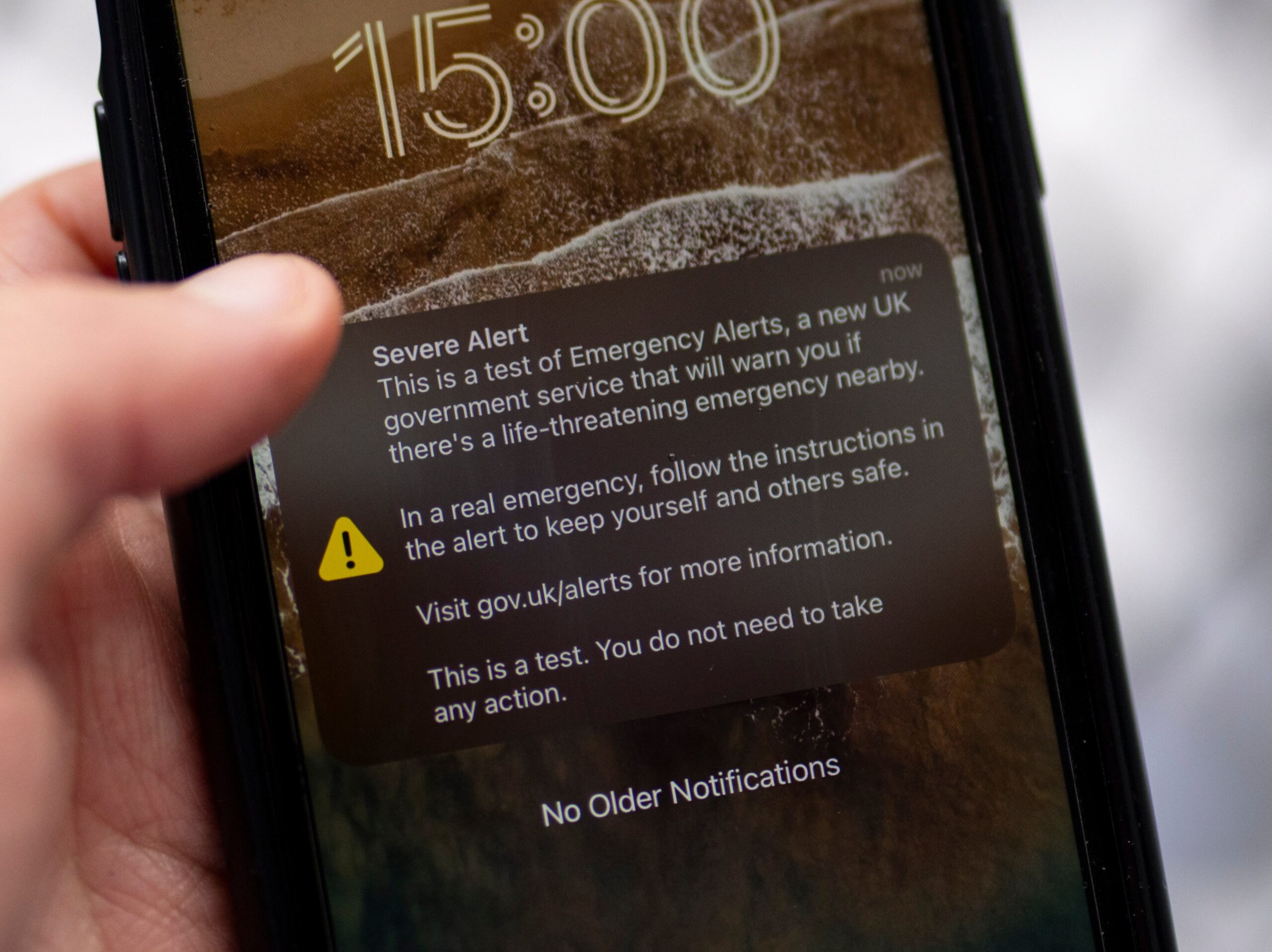The UK government has released the text of a national emergency alert, set to be broadcast as part of a crucial system test.
Millions of phones will vibrate and emit a siren for around 10 seconds when the message arrives at approximately 3pm on September 7.
The alert, under 100 words, will assure recipients they “do not need to take any action” and will be delivered in both English and Welsh.
This pre-publication is part of a public awareness campaign by the Cabinet Office, designed to prepare citizens for the drill, including those with hidden phones due to domestic abuse.
The message will reach mobile phones on 4G and 5G networks across the UK.
On Monday, the Cabinet Office said the text message will include both English and Welsh and be sent to mobile phones on 4G and 5G networks in the UK.

It will read: “This is a test of Emergency Alerts, a UK government service that will warn you if there’s a life-threatening emergency nearby.
“You do not need to take any action. In a real emergency, follow the instructions in the alert to keep yourself and others safe.
“Find simple and effective advice on how to prepare for emergencies at gov.uk/prepare.
“Visit gov.uk/alerts for more information or to view this message in Welsh. Ewch i gov.uk/alerts am ragor o wybodaeth neu i weld y neges hon yn y Gymraeg.”
Chancellor of the Duchy of Lancaster Pat McFadden said: “Just like the fire alarm in your house, it’s important we test this system so that we know it will work if we need it.
“The alerts have the potential to save lives.”
Since the first national test of the system in April 2023, five alerts have been sent, including during major storms such as Storm Eowyn in January when lives were at risk.
Other activations have took place when an unexploded Second World War bomb was discovered in Plymouth, as well as during flash floods in Cumbria and Leicestershire.
Some MPs have called on ministers to use different modes of communication for the alert in order to ensure it reaches people who do not have access to a phone.
Liberal Democrat Cabinet Office spokeswoman Sarah Olney has suggested the Government follows Scandinavian examples where the public have been handed pamphlets about preparing for emergencies.
